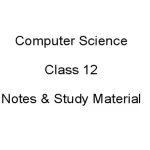IT quiz questions and answers can boost your knowledge of technology, programming, and related subjects. This guide presents a variety of educational questions across IT topics. It includes answers to expand your understanding and prepare for competitive exams or quizzes. The content is simple, useful, and easy to grasp for everyone.
Programming Questions
Question: What does the term “debugging” mean in programming?
Answer: Debugging is the process of identifying and fixing errors in software code.
Question: Which programming language is known as the “mother of all languages”?
Answer: C is often referred to as the “mother of all languages.”
Question: What is the main purpose of using loops in programming?
Answer: Loops are used to execute a block of code repeatedly based on a condition.
Question: What is the full form of OOP in computer science?
Answer: OOP stands for Object-Oriented Programming.
Question: Name a popular programming language for developing Android apps.
Answer: Java is a popular programming language for Android app development.
Question: What does the keyword “return” do in programming?
Answer: The “return” keyword sends a value back from a function to the caller.
Question: What is the main difference between Python and JavaScript?
Answer: Python is a general-purpose language, while JavaScript is mainly used for web development.
Question: What is a variable in programming?
Answer: A variable is a storage location in memory with a specific name to hold data.
Question: Define recursion in programming.
Answer: Recursion is when a function calls itself to solve a smaller instance of a problem.
Question: What is the purpose of an Integrated Development Environment (IDE)?
Answer: An IDE provides tools like a code editor, debugger, and compiler to streamline development.
Question: What is the difference between a compiler and an interpreter?
Answer: A compiler translates the entire code before execution, while an interpreter translates code line by line.
Question: What is the function of the “if” statement in programming?
Answer: The “if” statement checks a condition and executes a block of code if the condition is true.
Question: What is the difference between “==” and “===” in JavaScript?
Answer: “==” compares values, while “===” compares both values and data types.
Question: What is the main purpose of a database in programming?
Answer: A database is used to store, manage, and retrieve data efficiently.
Question: What is an algorithm?
Answer: An algorithm is a step-by-step procedure to solve a specific problem.
Question: What does the term “syntax” mean in programming?
Answer: Syntax refers to the set of rules that define the structure of a programming language.
Question: What is an API in programming?
Answer: An API (Application Programming Interface) allows communication between different software applications.
Question: What is the difference between a stack and a queue?
Answer: A stack follows Last-In-First-Out (LIFO), while a queue follows First-In-First-Out (FIFO).
Question: What is the use of a constructor in object-oriented programming?
Answer: A constructor initializes an object when it is created.
Networking Questions
Question: What does the term “IP” stand for in networking?
Answer: IP stands for Internet Protocol.
Question: What is the purpose of a router in a network?
Answer: A router directs data packets between different networks.
Question: What is the difference between TCP and UDP?
Answer: TCP is connection-oriented, while UDP is connectionless and faster.
Question: What is a LAN?
Answer: LAN stands for Local Area Network, connecting devices in a limited area.
Question: What is the primary function of DNS in networking?
Answer: DNS translates domain names to IP addresses.
Question: Define “firewall” in the context of networking.
Answer: A firewall protects a network by filtering incoming and outgoing traffic.
Question: What is the full form of HTTP?
Answer: HTTP stands for Hypertext Transfer Protocol.
Question: What is the purpose of a MAC address?
Answer: A MAC address uniquely identifies a device on a network.
Question: What is the difference between IPv4 and IPv6?
Answer: IPv4 uses 32-bit addresses, while IPv6 uses 128-bit addresses.
Question: What is VPN used for in networking?
Answer: A VPN provides secure remote access to a network.
Question: What is bandwidth in the context of networking?
Answer: Bandwidth is the maximum data transfer rate of a network.
Question: What does the ping command do?
Answer: Ping checks the connectivity between two devices on a network.
Question: What is the purpose of an Ethernet cable?
Answer: Ethernet cables connect devices in a wired network.
Question: What is a subnet mask?
Answer: A subnet mask divides an IP address into network and host parts.
Question: What is the function of an access point in wireless networks?
Answer: An access point extends the range of a wireless network.
Question: What is NAT in networking?
Answer: NAT (Network Address Translation) allows multiple devices to share a single IP address.
Question: What is the role of a proxy server?
Answer: A proxy server acts as an intermediary between a client and the internet.
Question: What is an IP address?
Answer: An IP address identifies a device on a network.
Question: What is the function of a switch in networking?
Answer: A switch connects devices within the same network.
Database Management Questions
Question: What is SQL used for in databases?
Answer: SQL is used to manage and query data in relational databases.
Question: What does the term “primary key” mean in a database?
Answer: A primary key uniquely identifies each record in a table.
Question: What is the difference between a table and a view?
Answer: A table stores data, while a view is a virtual table based on a query.
Question: What is the purpose of indexing in a database?
Answer: Indexing speeds up the retrieval of data.
Question: What is a foreign key?
Answer: A foreign key links one table to another.
Question: What does CRUD stand for in database operations?
Answer: CRUD stands for Create, Read, Update, and Delete.
Question: What is a database schema?
Answer: A schema defines the structure of a database.
Question: What is normalization in databases?
Answer: Normalization reduces data redundancy and improves data integrity.
Question: What is the difference between DELETE and TRUNCATE commands in SQL?
Answer: DELETE removes specific records, while TRUNCATE removes all records from a table.
Question: What is a stored procedure?
Answer: A stored procedure is a set of SQL statements stored in the database.
Question: What is a NoSQL database?
Answer: NoSQL databases store data in formats other than tables, like documents or key-value pairs.
Question: What is the difference between UNION and JOIN in SQL?
Answer: UNION combines the results of two queries, while JOIN combines data from multiple tables.
Question: What is a transaction in a database?
Answer: A transaction is a sequence of operations treated as a single unit of work.
Question: What does ACID stand for in database management?
Answer: ACID stands for Atomicity, Consistency, Isolation, and Durability.
Question: What is a trigger in a database?
Answer: A trigger is a set of instructions executed automatically in response to specific events.
Question: What is the difference between clustered and non-clustered indexes?
Answer: A clustered index sorts data physically, while a non-clustered index does not.
Question: What is the purpose of a data warehouse?
Answer: A data warehouse is used for storing and analyzing large amounts of data.
Question: What is the use of the GROUP BY clause in SQL?
Answer: GROUP BY is used to group rows with the same values in specified columns.
Question: What is an ER diagram?
Answer: An ER (Entity-Relationship) diagram visually represents database structures.
Learning about IT questions and answers strengthens your understanding of technology, databases, and networks. This comprehensive Q&A guide is a valuable resource for exams and improving practical knowledge. Whether you’re a beginner or an advanced learner, these questions will enhance your skills and readiness.
Latest Posts
- Step-by-step guide to download and apply for jee mains admit card 202
- Comprehensive 2025 government holidays and recruitment details for job seekers
- JEE Mains Admit Card 2025: Your Step-by-Step Guide to Downloading the Hall Ticket
- Everything You Need to Know About 2025 Government Holidays Recruitment
- Comprehensive Guide to rrb d group recruitment 2025 – Eligibility, Vacancies, and Application
- Detailed guide to nps trust recruitment 2025 vacancies, eligibility and apply process
- Comprehensive guide to hpcl recruitment 2025 notification, vacancies, and application process
- ignou bed admission 2025 complete recruitment guide with eligibility and process
- Comprehensive Guide to Indian Army Agniveer Recruitment 2025 Notification and Jobs
- Everything You Must Know About CBSE Board Exams 2025 Changes & New Rules






